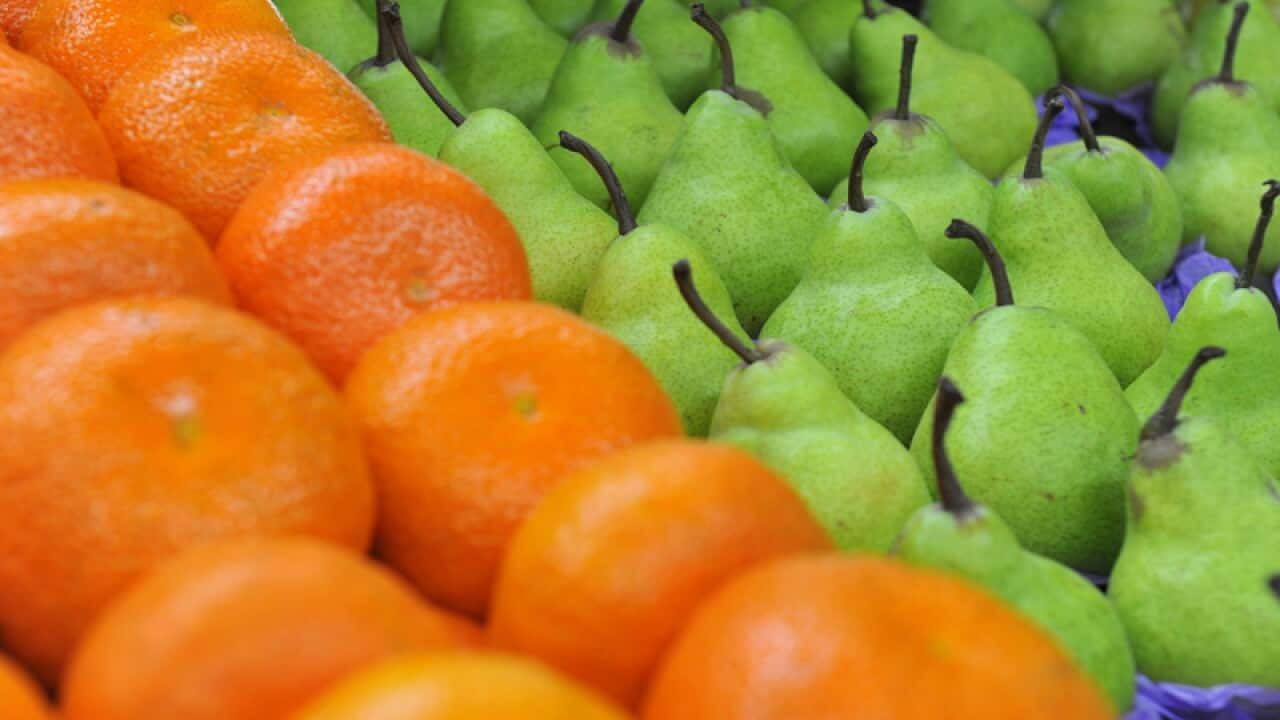Economists doubt there will be an interest rate cut when the Reserve Bank board meets on Melbourne Cup Day after new inflation figures showed slightly higher price pressures than expected.
This was the result of a sharp jump in fruit and vegetable prices, followed by rising electricity costs during the September quarter.
The consumer price index rose 0.7 per cent in the quarter, almost double the growth of the previous three months, but still left the annual rate at a meagre 1.3 per cent.
The annual rate, and the more interest-rate-sensitive underlying measures of inflation, remain comfortably below the central bank's two to three per cent target band, suggesting the cash rate won't be rising anytime soon.
Financial markets wound back any thought of a cut in the cash rate when the central bank board meets on Tuesday, following the data.
"The risk of a surprise Melbourne Cup day rate cut looks to have passed," Macquarie Research economist James McIntyre said.
The Reserve Bank had cut the cash rate in May and August after the previous quarterly inflation readings, and the rate now stands at a record low 1.5 per cent.
Fruit prices soared 19.5 per cent in the quarter, followed by vegetables up 5.9 per cent and electricity increasing by 5.4 per cent.
South Australia saw the largest proportional increase in electricity prices, a major concern for business, SA senator Nick Xenophon says.
"Energy costs ... are worth a lot more than any tax cut that is being offered by the federal government," Senator Xenophon told reporters in Canberra.
He said Treasury's own modelling shows the company cuts will have a minuscule impact in terms of economic growth.
Treasurer Scott Morrison was in SA on Wednesday for a business roundtable.
He took the opportunity to gee-up Senator Xenophon and his team to support the government's 10-year business tax plan and back improvements to the budget.
"When the Labor Party is going to vote against improving the budget ... (the Xenophon team) sit in the box seat here and they can't squib it," Mr Morrison told 5AA Adelaide radio.
Senator Xenophon said "megaphone negotiations" are not the best way of doing things.
"I'm happy to do that - the next time I'm here I'll bring my megaphone," Senator Xenophon said.
He described it as a "very big Rubic's cube" because the government also wants to have $6 billion of welfare cuts and says the impact of those could be quite severe among the disadvantaged.
If successful, the company tax rate will be cut to 25 per cent from 30 per cent for all businesses by 2026/27.
In the interim, it would be lowered to 27.5 per cent for business earning under $10 million now, for those with a $25 million turnover in 2017/18 and then to $$50 million in 2018/19.
The Xenophon team supports only the initial tranche of tax cuts, while Labor wants a cut limited to companies with an annual turnover of up to $2 million.









